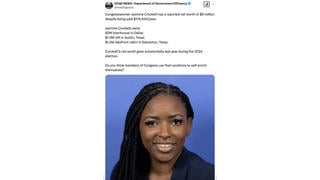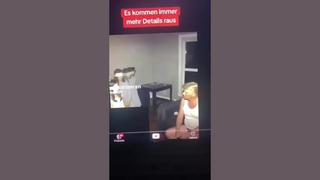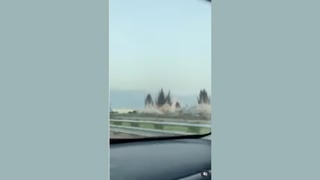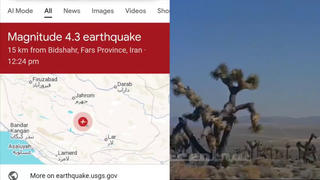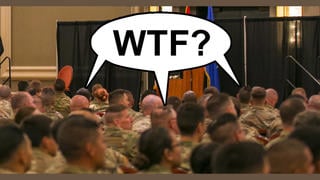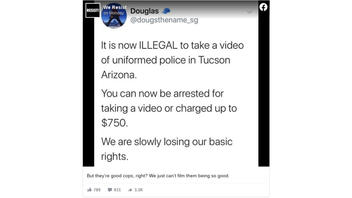
Did the Tucson, Arizona, City Council pass an ordinance making it illegal for citizens to video the police? No, that's not true: The Tuscon council passed an ordinance allowing fines for anyone who enters a restricted crime scene area and engages in activity that hinders police doing their work, but it does not make recording police with cameras a crime.
The claim appeared in a series of memes, including in a post (archived here) published by Facebook on June 8, 2020, with the title "But they're good cops, right? We just can't film them being so good." It read:
It is now ILLEGAL to take a video of uniformed police in Tuscon Arizona. You can now be arrested for taking video or charged up to $750. We are slowly losing our basic rights.
This is what the post looked like on Facebook at the time of writing:
(Source: Facebook screenshot taken on Wed Jun 10 02:13:22 2020 UTC)
The city council passed Ordinance 11746 in April 2020, before nationwide protests about police brutality began following the death of George Floyd in Minneapolis police custody. The Tucson City Council claimed the ordinance was passed to stop citizens from interfering in police crime scenes. Tucson Mayor Regina Romero has now said officials are reviewing it amid intense backlash following nationwide protests about police brutality caught on camera.
It is true that the city of Tucson passed the ordinance in April, creating a Class 2 misdemeanor with a $750 fine that allows the police to arrest people that refuse to stay outside a crime scene boundary while they are at police calls.
Despite the claims that have gone viral, though, the ordinance does not make it illegal for citizens to film the police while they are conducting police business in public. It becomes a matter of interpretation of the ordinance that passed.
The Arizona Daily Star reported on the ordinance passing unanimously on April 21, 2020. The article opened:
The Tucson Police Department will no longer be forced to star in videos that cater to cop-haters.
It explained that police were hoping to thwart the efforts of a group called "First Amendment auditors" who film at public events and crime scenes, and authorities claim they try to start trouble with the officers so they can film what happens.
The article describes a video from the group shown to the council members:
A man approached two officers, one of them female, as they guarded the perimeter of a crime scene. When asked to move back, he launched an X-rated tirade, shouting the B-word, the C-word, the F-word and other obscenities for about 20 minutes as his camera rolled.
"It was horrific," Ward 4 council member Nikki Lee said of the footage.
"The emotional violence was pretty terrifying," Ward 1 council member Lane Santa Cruz agreed.
The officers kept their cool during the run-in, the footage showed.
Meanwhile, online viewers of the live stream cheered the man's outburst, and joined in by posting anti-police slurs such as "Oink Oink" and "Here Piggy-Piggy," the Star found.
However, amid the national protests after George Floyd's death, a spotlight was put on the ordinance.
This Tweet went viral bringing national attention to Tucson and the ordinance amid the national police brutality protests.
The Tucson city council passed an ordinance making it illegal for citizens to film the Tucson police. I'm horrified. This needs national attention.
-- 🌹⧖ ☭ The Artsy Marxist ☭ ⧖ 🌹 BLM (@Artsymarxist) June 6, 2020
Rapper Ice Cube also blasted the ordinance to his 5.2 million followers on Twitter:
Please make sure its pro-people and not pro-Law Enforcement. Y'all should have an emergency meeting to make sure you're satisfying the great citizens of Tucson and surrounding areas. I love it there I'd hate to miss it. https://t.co/GLcnXnHZn9
-- Ice Cube (@icecube) June 7, 2020
Amid the backlash, the mayor announced that she was going to ask the city council to review the ordinance.
"I am going to recommend to ... Council that we receive more community feedback, consider additional language, and bring the ordinance back for further review," the Arizona Daily Star reported.
The newspaper noted Romero sent City Manager Michael Ortega a memo requesting they discuss the ordinance during a meeting.
"After hearing feedback from the community, it is important that we discuss and review what actions this ordinance prohibits and, just as important, what it does not prohibit," the memo said.
The ordinance recognizes that the "public has a clear right to free speech and to record police activities that take place in public." It also recognized that recording police activity and "engaging in constitutionally protected speech alone" is not prohibited, meaning it does not make it illegal to record police.
According to the Arizona Daily Star, the Tucson police Chief Chris Magnus addressed the council during the June 9 meeting and explained the officers always have their own body cameras on and they are aware of and used to being filmed in public.
"They can still film, absolutely," Magnus said. "They just have to be a reasonable distance back and we have to be fair what that distance is and we have to be able to justify it."
No arrests for violations of the ordinance have been made since it passed and Romero spoke on June 8 about the situation amid the police brutality protests following Floyd's death.
According to the Arizona Daily Star, Romero said:
The fear that our black brothers and sisters feel during their interactions with law enforcement is very real. The ability to record members of our Police Department is a critical mechanism for public accountability, and in many instances, the only way injustices and abuses have been exposed across the country.
This is how the newspaper's website described the ordinance:
The ordinance prohibits people from entering police-restricted areas and says police officers can restrict people from entering crime scenes or areas immediately surrounding where police are working or investigating. It makes it illegal for people to interfere with police enforcement activity and investigations by "knowingly engaging in conduct that materially inhibits, obstructs and hinders or delays" a police officer or community service officer in their official work, the ordinance says.
Here are excerpts from the language of the ordinance:
WHEREAS, the public has a clear right to free speech and to record police activities that take place in public; and WHEREAS, in choosing to exercise these constitutional rights, people may not jeopardize the safety of law enforcement officers, suspects, victims, witnesses, themselves, or others, nor may they interfere with a police investigation or enforcement
activity.Sec. 11-70.3. Police Restricted Areas; entrance prohibited. A. Police officers or Community Service Officers conducting enforcement activity, investigations, and other police-related activities may restrict {A0277415.doc/} 2 individuals from physically entering crime scenes or areas immediately surrounding where such enforcement activity, investigations, and other police-related activities are taking place. Police Officers or Community Service Officers may establish the boundaries of a restricted area by using physical barriers, placing visual markers like caution tape, or expressly communicating that an area is temporarily restricted for police activity. B. If a Police Officer or Community Service Officer has established a restricted area, it shall be unlawful for any person to enter the restricted area without a Police Officer's or Community Service Officer's express permission to enter; or to refuse to comply with a Police Officer's or Community Service Officer's request or direction to leave the restricted area.
Sec. 11-70.4. Interfering with Police Investigations or Enforcement Activity.
A. It shall be unlawful for any person to interfere with enforcement activity, investigations, and other police-related activities by knowingly engaging in conduct that materially inhibits, obstructs, hinders, or delays any Police Officer or Community Service Officer in the exercise of the Officer's official duties.
B. The acts of recording police activity or engaging in constitutionally protected speech alone shall not be considered prohibited conduct under this section.
The ACLU said the city reached out for input on the ordinance but the staff was not able to review it until after it was passed.
The ACLU of Arizona sent a letter to the mayor and city council saying:
While the Tucson City Ordinance No. 11746 is problematic and raises constitutional questions, it's important for the residents of Tucson to remember that they still have the right to record or photograph police carrying out their duties. We urge anyone who has been restricted from doing so to contact the ACLU of Arizona.
It is imperative that Tucsonans be given a clear opportunity to comment on such an important matter impacting their First Amendment rights, especially as people across the country, including Tucson, are exercising their right to protest to demand police accountability and an end to police violence."
The Mayor and Council asked for community input into the ordinance and will discuss the response at a June 23 meeting.
Lead Stories reached out to the mayor's office and will update if a response is received.



